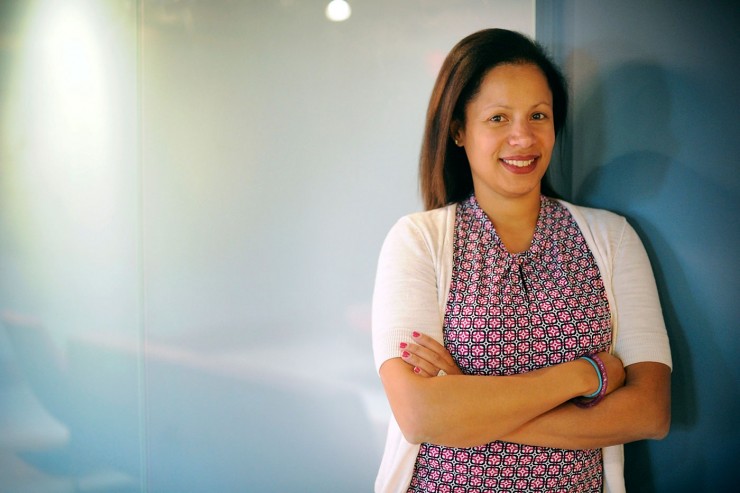Engineering Better Medical Therapies Through Biology

New ChE Professor Debra Auguste is studying human biology to develop better medical therapies and drug delivery methods.
Source: News @ Northeastern
There is nothing homogenous about the human body, says new chemical engineering professor Debra Auguste. That’s why her research into creating biomaterials that improve medical therapies and drug delivery methods for illnesses such as breast cancer is focused on exploring human biology at the molecular level.
“We try to understand what is happening on the biological level so we can use that information to engineer better therapeutics,” noted Auguste, who earned her doctoral degree in chemical engineering from Princeton University.
In 2009, she was named one of the 50 most influential African-Americans in technology.
She comes to Northeastern from City College of New York and plans to begin teaching graduate courses in drug delivery or analytical chemistry next year. “I’m excited to pursue the opportunities here,” Auguste said. “I have a lot of friends here and there are a lot of people here whose work I’ve known about since I was in graduate school.”
A strong focus of Auguste’s research is focused on breast cancer, and finding ways to promote cancer cells’ binding ability in order to ensure chemotherapeutics are directed right to the tumor. She also has an interest in connecting therapies to circulating tumor cells in order to stop metastasis.
In addition, her work creating neonatal tracheas is a great example, Auguste says, of how in some cases scientists must create a biomaterial to perform contradictory functions. “At the same time that your trachea has to be open so you can breathe, part of it also has to be able to fold in so you can cough and expel your mucus. And it also has to be able to stretch with your diaphragm,” she said. Generating materials that are stiff yet elastomeric is a fundamental problem. The Auguste lab is interested in how to mimic mechanical properties found in native tissues.
Now that she is at Northeastern, Auguste is excited to work with the cohort of researchers focused on nanotechnology and create interdisciplinary partnerships with colleagues in the School of Pharmacy.
“They can provide a unique perspective into how to get from the bench to the clinic,” Auguste said.